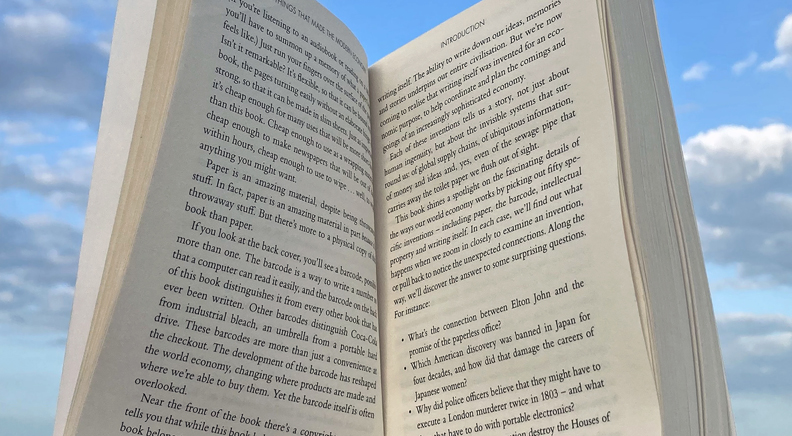
(Thomas Froese Photo)
(The Hamilton Spectator – Saturday, September 28, 2024)
My own view is that misbehaving books are like misbehaving kids. You can banish them to some corner away from others, but that might create a larger distraction.
It’s on the radar because today finishes Banned Books Week in the U.S., that neighbour with cultural sway over us.
Two stories come to mind.
The first involves a university student. In my creative writing class, she recently played her guitar and sang a self-composed song, “You have a voice too.” I encourage students to reflect on some readings in any way they wish. Even so, the song, a first over the years, was something.
This is because unabashed creativity isn’t something you see every day. As the painter Picasso said, “Every child is an artist. The challenge is remaining one once you grow up.
It’s well-meaning adults who beat it out of us. Our own fears, that our creative efforts won’t measure up, also beat us down. It’s only with care and love, really, that you might find your way back and even sing about it one day.
So creative freedom has its place. As sons of Adam and daughters of Eve we’ve been given freedom from the start. And imagination.
Story particularly can have distilled power. Words, whether they’re seven or 70 or 700 years old, can cut to the heart. Unlike other art forms like, say, painting, writing is more hematological. Words go straight into the bloodstream like a transfusion, writer to reader.
But if there’s creative writing, is there such a thing as destructive writing? What if your best and brightest learns to develop his voice, then writes Mein Kampf and starts a world war? That’s blood poisoned. Look at the internet. Freedom, at least freedom at any cost, has issues.
Which brings us to the second story. It’s about a terror threat once known in East Africa.
One expatriate family responded by looking into hiring an armed guard at their house. Then they decided no, they’d focus on daily life, not daily alarm or fear. So no armed guard, but other precautions including an emergency escape route.
“Remember, if Mom or Dad can’t come, leave the house through the escape hatch, hide under the neighbour’s storage tank, then up the hill past the banana trees to the dirt road, then all the way to those friends we’ve met.”
Yes, the world has dangers. Some crazy book might even get you, or your child. But, like with that family, in reality, such calamity will likely never arrive after all. So forget the arms. Take other precautions. Then get on with it, your reading life.
Read widely. Learn empathy. Grow in humility. Learn of your brokenness. And mine. Learn what makes humans so glorious. And lost. This is the larger issue. In our time of diminishing humanities and liberal arts, rebuilding a culture of reading helps us better understand the human condition. It brings you a measure of peace and wellness. Social science validates it.
And those naughty banned books? They’re just a distraction. Book bans can change like the weather.
I’ve taught “To Kill a Mockingbird,” banned for racism. I’ve gifted students “The Catcher in the Rye,” banned for potty language and lusty thoughts. I’ve been awakened by “1984,” banned for political agitation. I’ve marvelled at “Charlotte’s Web” and similar books banned for talking animals. (Talking animals!)
My own life has been saved by it, the healing, the bibliotherapy, that can be in good storytelling, in potent literature. Oh, and that family formerly in East Africa? It’s my family. So I understand fear. And danger.
But then I’m like Lucy, from Chronicles of Narnia, knowing love and intelligence and paradox, Lucy learning from talking animals (again, the talking animals), learning of the majestic Lion, Aslan, the great king, that story’s picture of the Almighty, somehow hidden and silent, somehow not.
“Is he safe?” little Lucy asks.
“Safe?” Mr. Beaver says. “Who said anything about safe? ‘Course he isn’t safe. But he’s good.”

One of your best, Thomas!
From an accomplished writer such as yourself, that’s affirming, thanks Bernadette. Looking forward to having you speak to my students again before long.
Excellent reflection!
Oh, to open our hearts! I hope your readers do.
And some will.